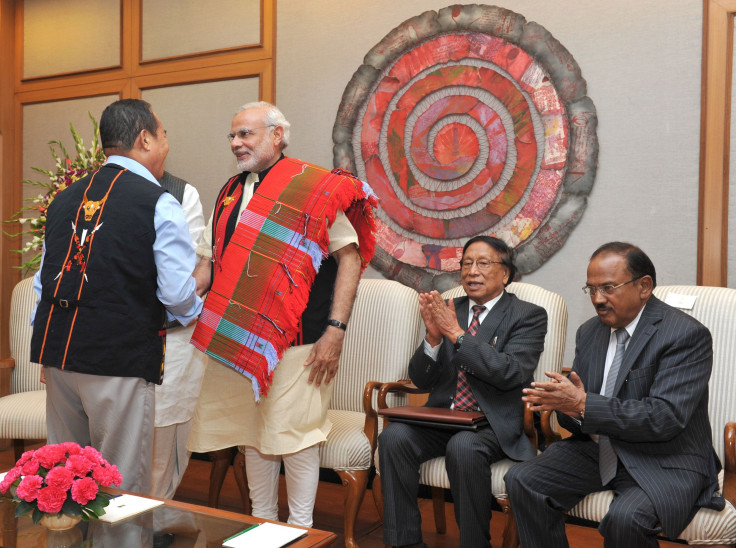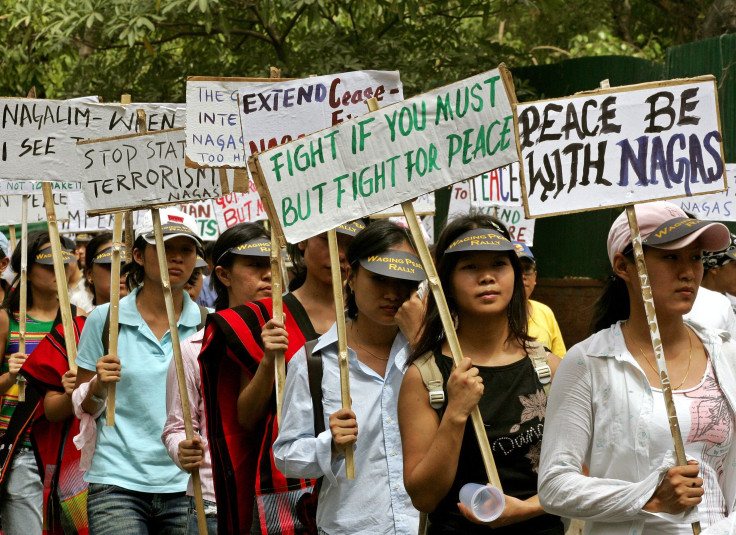Nagaland Peace Deal: Indian Government Signs Accord To End Protracted Conflict

The Indian government on Monday signed a “historic” agreement to end a longstanding conflict in the country’s northeast. The peace deal aims to end over six decades of conflict between government forces and rebels in the state of Nagaland -- a region far removed from the power center of New Delhi, and further isolated from the rest of the country by a rugged, mountainous landscape.
“Today’s agreement is a shining example of what we can achieve when we deal with each other in a spirit of equality and respect, trust and confidence,” Indian Prime Minister Narendra Modi said, in a statement released after the agreement was signed, adding that the problem had festered for so long because “we did not understand each other.”
Although details of the peace agreement have not yet been revealed, it is being called a significant step toward resolving the protracted -- and often violent -- insurgency in the region.
The conflict in Nagaland began when India became independent from British rule in 1947. On August 14 of the same year, the Naga National Council (NNC) -- an organization led by Angami Zapu Phizo -- declared Nagaland as an independent state. Five years later, in 1952, Phizo formed the Naga Federal Government (NFG) and the Naga Federal Army (NFA), following which the Indian government enacted the controversial Armed Forces Special Powers Act and deployed the army in “disturbed areas” across the state.

In 1975, following years of clashes with the Indian army, a section of NNC leaders agreed to lay down arms and drop their demands for secession. However, a huge faction within the NNC refused to abide by the so-called “Shillong Agreement” and established the Nationalist Socialist Council of Nagaland (NSCN), which called for the creation of “Nagalim” -- an independent Nagaland that encompassed parts of the neighboring states of Manipur, Assam and Arunachal Pradesh, as well as large swathes of Myanmar.
However, disagreements within the newly-created entity over whether to initiate dialogue with the Indian government led to a further split in its ranks. In 1988, the NSCN split into the NSCN-K -- led by S. S. Khaplang -- and the NSCN (I-M) -- currently the dominant insurgent group in Nagaland, led by Thuingaleng Muivah and Isak Swu.
Monday’s agreement -- reached nearly 50 years after a previous agreement signed in 1960 fell through some years later amid a spate of violent clashes -- was signed between the government and leaders of the NSCN (I-M) after nearly two decades of talks.
Meanwhile, Khaplang, who, in April, reneged on a ceasefire agreement with the Indian government -- triggering a new cycle of violence in the state -- denounced the agreement, reportedly calling it a “betrayal” of the Naga cause, and vowed to not compromise on the “Naga desire for independence.”
However, it is likely that with NSCN (I-M) signing the accord, other smaller insurgent groups in the country would lay down weapons, Modi said. Currently, the Indian government is grappling with separatist movements in disputed regions of Jammu and Kashmir in the north and with the communist “Naxalite” movement in parts of India’s eastern and central states.
“Today, we mark not merely the end of a problem, but the beginning of a new future,” Modi added.
© Copyright IBTimes 2024. All rights reserved.






















